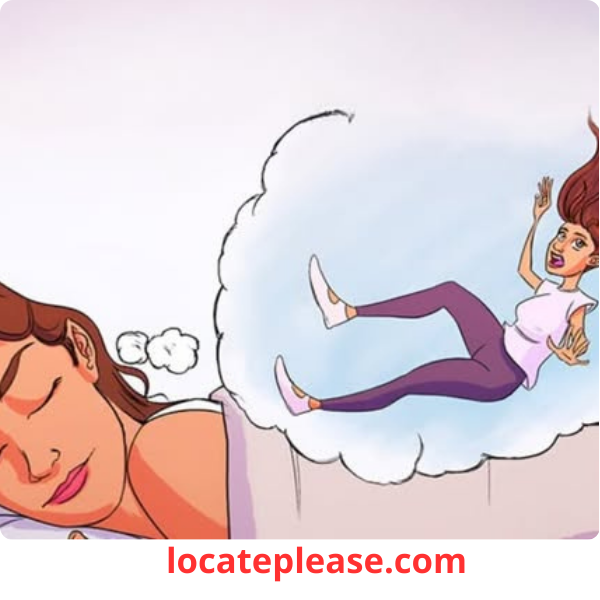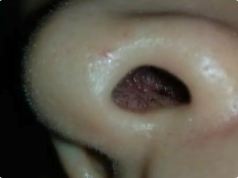You’re drifting off to sleep — peaceful, relaxed, almost gone — when suddenly…
You jolt awake.
Your heart races.
Your muscles twitch.
And in your mind, you’re certain:
👉 You just fell.
This startling sensation — the feeling of plummeting into darkness just as you fall asleep — is more common than you think.
And while it can be alarming, it’s usually completely normal.
So what’s really happening?
Let’s unravel the mystery behind this nightly phenomenon — and why your brain might be playing tricks on you as you drift off.
🌙 What Causes the Falling Sensation During Sleep?
This sudden jolt is known as a hypnic jerk (or sleep start) — a type of involuntary muscle twitch that occurs in the transition between wakefulness and sleep.
It’s often accompanied by:
- A vivid sensation of falling, tripping, or missing a step
- A twitch or full-body jerk
- A racing heartbeat
- Sometimes, a flash of dream-like imagery (like missing a stair or floating)
While harmless, hypnic jerks can disrupt the process of falling asleep — especially if they happen often.
🔬 The Science Behind the “Falling” Feeling
1. Your Brain Gets Confused During the Transition
As you fall asleep, your body goes through rapid changes:
- Muscles begin to relax and lose tension
- Heart rate and breathing slow down
- Brainwaves shift from beta (awake) to alpha and theta (drowsy)
But sometimes, your brain misinterprets muscle relaxation as a sign of falling.
In response, it triggers a protective reflex — sending a sudden signal to your muscles to “catch” yourself.
👉 The result?
You jolt awake — not because you’re in danger, but because your brain is playing it safe.
2. A Primitive Survival Reflex
Some scientists believe hypnic jerks are an evolutionary leftover.
Long ago, when our primate ancestors slept in trees, a sudden muscle spasm could have saved their lives — waking them up if they started to lose balance.
Even though we now sleep on beds, this ancient reflex still lingers in our nervous system.
3. Stress & Anxiety Make It Worse
People who are stressed, anxious, or mentally overactive are more prone to hypnic jerks.
A racing mind keeps the nervous system on high alert — making it harder to transition smoothly into sleep.
The brain stays “on guard,” increasing the chance of a misfire as it tries to shut down.
4. Stimulants Like Caffeine and Nicotine
Consuming coffee, energy drinks, or nicotine — especially in the afternoon or evening — can overstimulate the central nervous system.
This hyperarousal makes it harder for your body to relax, increasing the likelihood of sudden muscle twitches as you drift off.
5. Sleep Deprivation & Irregular Sleep Schedules
When you’re exhausted or sleep-deprived, your brain enters sleep more abruptly — sometimes skipping the gentle transition phase.
This “crash” into sleep can trigger more frequent hypnic jerks.
The same goes for inconsistent sleep patterns — like staying up late on weekends or rotating shifts.
6. Intense Exercise Too Close to Bedtime
Working out late in the evening can leave your nervous system revved up.
While exercise is great for sleep, vigorous activity within 3–4 hours of bedtime can delay relaxation — making your body more prone to sudden twitches as it tries to power down.
🛏️ How to Reduce or Prevent the Falling Sensation
You can’t eliminate hypnic jerks completely — they’re a natural part of being human — but you can reduce their frequency with a few smart habits.
✅ 1. Stick to a Consistent Sleep Schedule
Go to bed and wake up at the same time every day — even on weekends.
This helps regulate your body’s internal clock and smooths the sleep transition.
✅ 2. Avoid Caffeine & Stimulants After 2 PM
Give your nervous system time to wind down.
Opt for herbal tea or water in the afternoon and evening.
✅ 3. Create a Calming Bedtime Routine
Signal to your brain that it’s time to relax with:
- Reading a book
- Light stretching or yoga
- Meditation or deep breathing
- Listening to calming music
✅ 4. Finish Workouts Earlier in the Day
Aim to finish intense exercise at least 3–4 hours before bedtime.
If you must exercise at night, stick to gentle activities like walking or stretching.
✅ 5. Manage Stress & Anxiety
Practice mindfulness, journaling, or progressive muscle relaxation to quiet a busy mind.
✅ 6. Optimize Your Sleep Environment**
- Keep your room cool, dark, and quiet
- Use blackout curtains and white noise if needed
- Invest in a comfortable mattress and pillows
✅ 7. Don’t Panic When It Happens**
Hypnic jerks are normal and harmless for most people.
If they happen occasionally, there’s no need to worry.
But if they occur multiple times per night or severely disrupt your sleep, it may be worth discussing with a doctor — especially if linked to anxiety, sleep disorders, or restless leg syndrome.
💡 Final Thought: It’s Just Your Brain Powering Down
That sudden feeling of falling isn’t a glitch — it’s your brain’s quirky way of protecting you as you let go of consciousness.
It’s a sign that your body is transitioning into sleep — not that something’s wrong.
With a little self-care, routine, and relaxation, you can help your nervous system ease into sleep more gently — and reduce those midnight jolts.
So next time you “fall” as you drift off…
Take a deep breath.
Smile.
And let yourself sink — safely — into sleep.
Your brain’s way of saying: “I’ve got you.”






